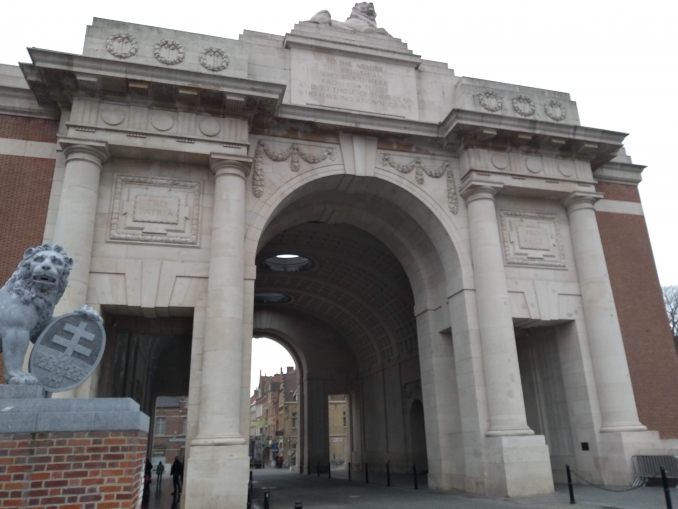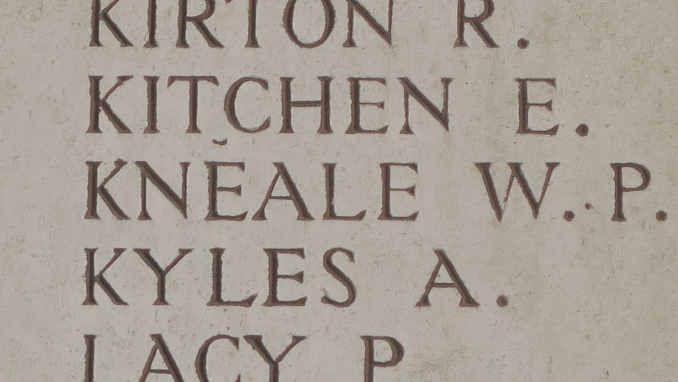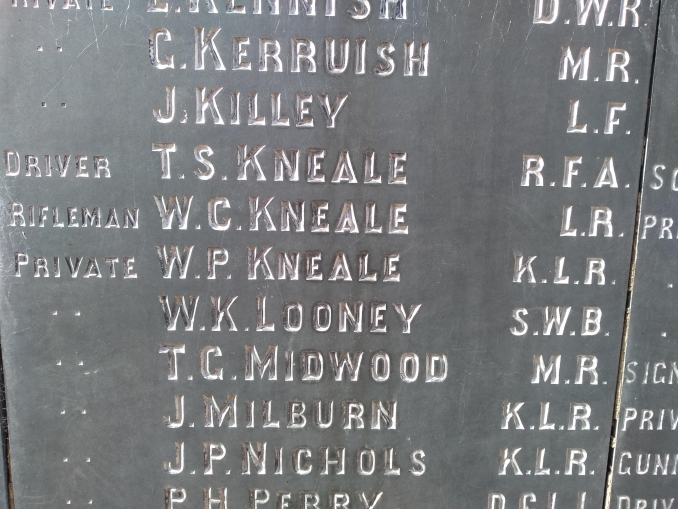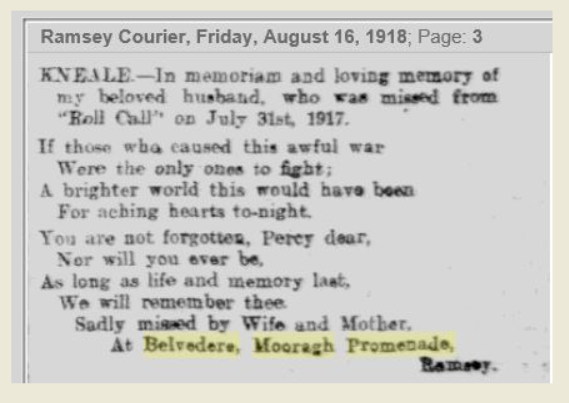Remembering the Pointless Cruelty of War
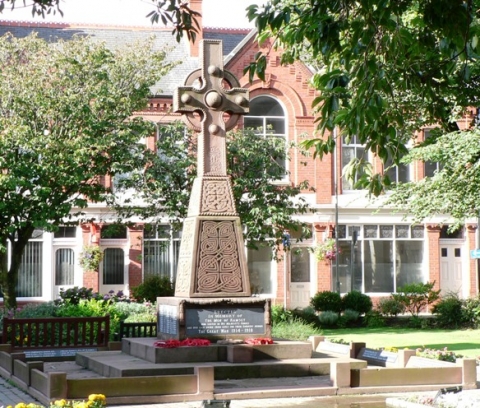
There was a notice placed in the Manx paper the Ramsey Courier on August 16th, 1918. It was placed by the wife of William Percy Kneale. He was killed on the first day of the Battle of Passchendaele in Belgium during the First World War on July 31, 1917. The notice read:
"KNEALE - In memoriam and loving memory of my beloved husband, who was missed from "Roll Call" on July 31st, 1917.
If those that caused this awful war
Were the only ones to fight;
A brighter world this would have been
For aching hearts tonight.
You are not forgotten, Percy dear,
Nor will you ever be,
As long as life and memory last,
We will remember thee.
Sadly missed by Wife and Mother,
At Belverdere, Mooragh Promenade, Ramsey."
A century later a ceremony was held at Ramsey War Memorial in his remembrance. One of a number of such commemorations to those whose names are on the beautifully designed Celtic Cross War Memorial in Ramsey Isle of Man (Manx Gaelic: Rhumsaa, Mannin). Four generations of William Percy Kneale’s family attended the commemoration. He was my Great Uncle.
His body was never recovered. In April 2019, my brother James, his wife and I went to the location in Flanders Belgium where the battle that resulted in his death took place. There are still places where trenches can be seen. We saw his name carved upon the Menin Gate. The Menin Gate Memorial to the Missing is a war memorial in Ypres, Belgium, dedicated to the British, Irish (Ireland left the Commonwealth in 1949) and other Commonwealth soldiers who were killed in the Ypres Salient of World War I and whose graves are unknown.
We also visited the many cemeteries in the area, including those of the German dead. The number of graves is staggering. The First World War (28 July 1914 to 11 November 1918) is one of the deadliest conflicts in history, it is estimated that it resulted in the death of over nine million combatants and seven million civilians. The graveyards of Flanders, another reminder of the death and useless suffering endured, in what was supposed to be the war that ended all wars.
Remembrance day in many parts of the world is observed annually on 11the November to mark the end of hostilities at the 11th hour of the 11th day of the 11th month of 1918. Those that decide to take part in the sorrowful remembrance of this awful event, do so not in an attempt to glorify war and promote jingoism and extreme patriotism. Many of those who fought in and survived the First World War rarely spoke of the hardship they had endured or the horror they had witnessed. The experience of gruelling trench warfare and the cruel reality of the terrible slaughter that took place scarred them for life.
Some of the last survivors of the awful conflict spent their final years warning future generations against war. Henry John Patch (17 June 1898 – 25 July 2009), was briefly the oldest man in Europe and the last surviving combat soldier of the First World War from any country. He was a tireless campaigner for peace and described the first world war as 'legalised mass murder'. As is often the case those that have actually experienced war do not attempt to glorify it. It is those political leaders responsible for taking people into this war that stand condemned. It makes the meaning of the words of the poem, placed in the Ramsey Courier by my Great Aunt, the widow of William Percy Kneale, very clear:
"Of those that caused this awful war
Were the only ones to fight;
A brighter world this would have been
For aching hearts tonight."
The words of Scottish journalist and politician Tom Johnston (2 November 1881 – 5 September 1965), also come to mind when he wrote at the beginning of the conflict that it was: “a cause in which we have no interest, in which we were never consulted, and from which no conceivable result can we derive any advantage – only starvation, hungry children, crying in the streets, bones lying in the battlefields, widows, orphans, tears”.
Image above: Celtic Cross War Memorial Ramsey, Isle of Man
Images below: Menin Gate. Name of WP Kneale carved on Menin Gate and on the Ramsey War Memorial. Notice in Ramsey Courier 1918.
